Related Research Articles
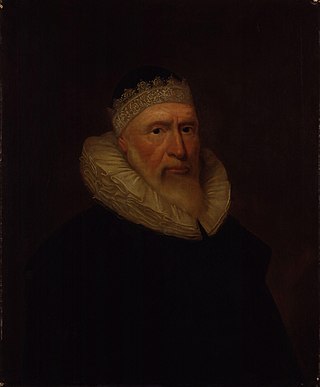
Sir Julius Caesar was an English lawyer, judge and politician who sat in the House of Commons at various times between 1589 and 1622. He was also known as Julius Adelmare.
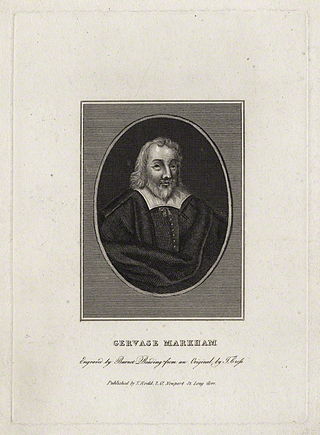
GervaseMarkham was an English poet and writer. He was best known for his work The English Huswife, Containing the Inward and Outward Virtues Which Ought to Be in a Complete Woman, first published in London in 1615.
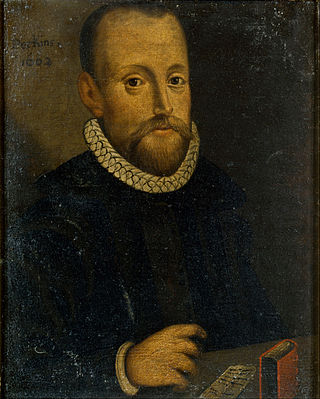
William Perkins (1558–1602) was an influential English cleric and Cambridge theologian, receiving a B.A. and M.A. from the university in 1581 and 1584 respectively, and also one of the foremost leaders of the Puritan movement in the Church of England during the Elizabethan era. Although not entirely accepting of the Church of England's ecclesiastical practices, Perkins conformed to many of the policies and procedures imposed by the Elizabethan Settlement. He did remain, however, sympathetic to the non-conformist puritans and even faced disciplinary action for his support.

Thomas Nevile was an English clergyman and academic who was Dean of Peterborough (1591–1597) and Dean of Canterbury (1597–1615), Master of Magdalene College, Cambridge (1582–1593), and Master of Trinity College, Cambridge (1593–1615).

Henry Constable was an English poet, known particularly for Diana, one of the first English sonnet sequences. In 1591 he converted to Catholicism, and lived in exile on the continent for some years. He returned to England at the accession of King James, but was soon a prisoner in the Tower and in the Fleet. He died an exile at Liège in 1613.

John Richardson was a Biblical scholar and a Master of Trinity College, Cambridge from 1615 until his death.
John Aglionby was an English clergyman and academic who was one of the translators of the King James Version of the Bible.
Robert Tounson — also seen as “Townson” and “Toulson” — was Dean of Westminster from 1617 to 1620, and later Bishop of Salisbury from 1620 to 1621. He attended Sir Walter Raleigh at his execution, and wrote afterwards of how Raleigh had behaved on that occasion.
Edward Allde was an English printer in London during the Elizabethan and Jacobean eras. He was responsible for a number of significant texts in English Renaissance drama, including some of the early editions of plays by William Shakespeare.

Richard Vaughan was a Welsh bishop of the Church of England.
Thomas Tomkis was an English playwright of the late Elizabethan and the Jacobean eras, and arguably one of the more cryptic figures of English Renaissance drama.
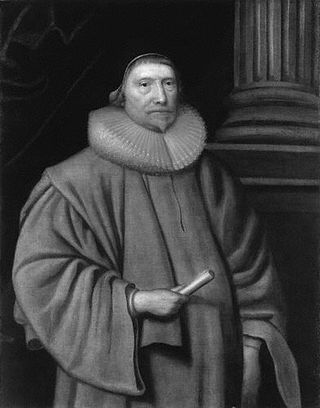
Sir Robert Hitcham was a Member of Parliament and Attorney General under King James I.
Richard Clayton was an English churchman and academic, Master of Magdalene College, Cambridge and St John's College, Cambridge and Dean of Peterborough.
John Harding was an English churchman and academic. He was Regius Professor of Hebrew at Oxford from 1591 to 1598, and President of Magdalen College, Oxford, from 1607. He was also involved in the translation of the Authorized King James Version, becoming leader of the First Oxford Company of translators after the death of John Rainolds.
Anna Maria of Hesse-Kassel was a princess of Hesse-Kassel by birth and by marriage Countess of Nassau-Saarbrücken.
Sir George Fane was an English politician who sat in the House of Commons at various times between 1601 and 1640.
Louis II of Nassau-Weilburg was a count of Nassau-Weilburg.
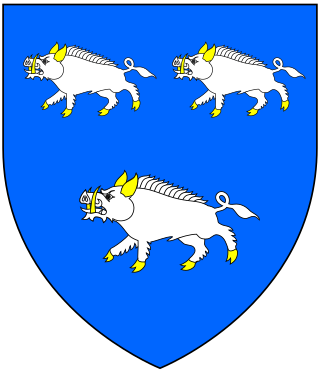
Barnabas Gooch or Goche or Gough was an English lawyer and academic who was Vice-Chancellor of the University of Cambridge from 1611 to 1612. He was also a politician who sat in the House of Commons from 1621 to 1624.

Sir James Harington, 1st Baronet (1542–1613/4) of Ridlington, Rutland, was an English politician.
References
- Lee, Sidney, ed. (1895). . Dictionary of National Biography . Vol. 43. London: Smith, Elder & Co.